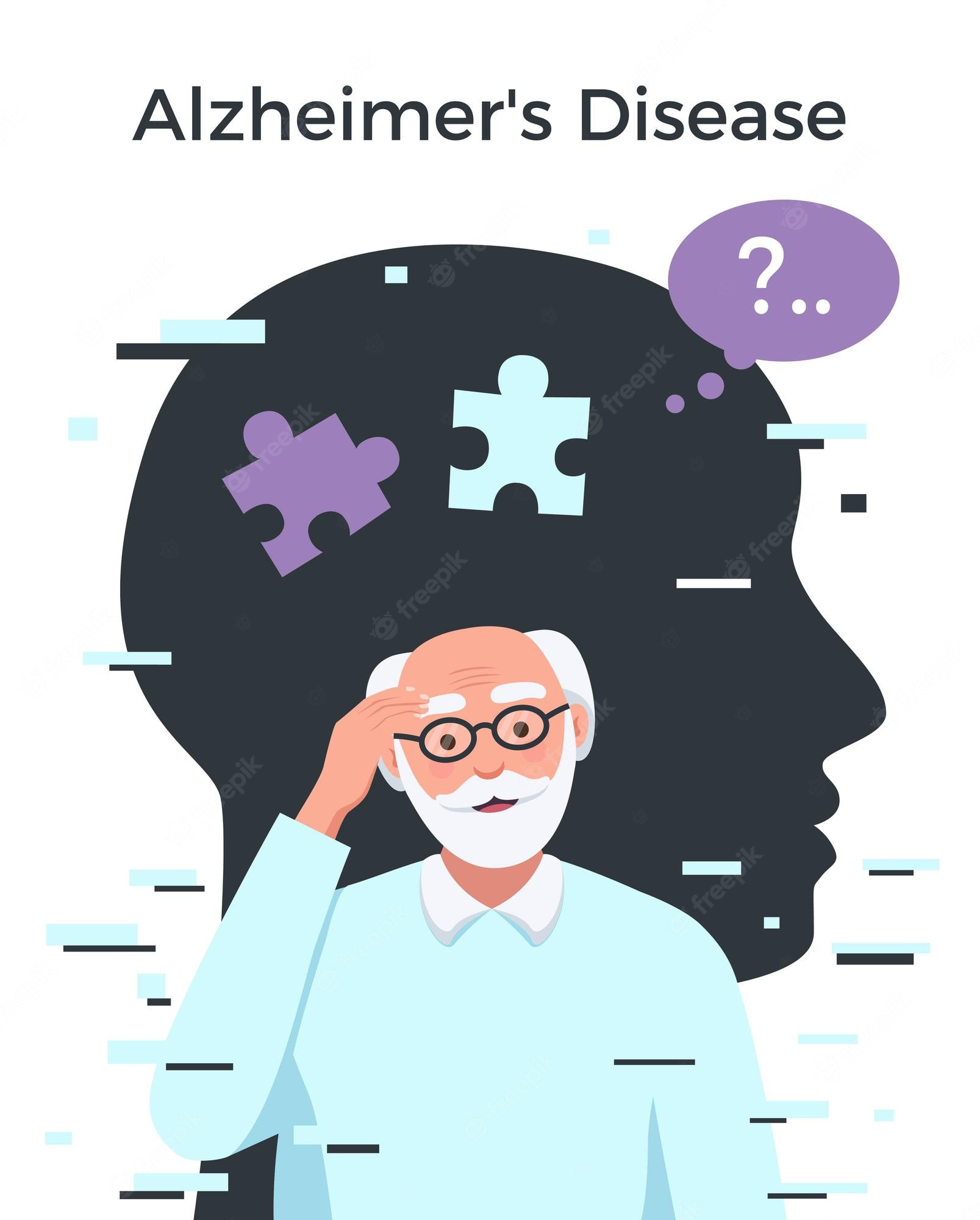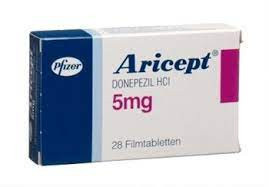Definisi
Demensia merupakan sebuah sindroma atau kumpulan gejala penurunan fungsi kognitif (seperti berpikir, memori, orientasi, pemahaman, berhitung, bahasa, kemampuan belajar, dan pembuatan keputusan) yang bersifat kronik dan semakin parah seiring waktu. Penurunan fungsi kognitif pada usia lanjut dapat terjadi, namun pada demensia, penurunan ini terjadi pada laju yang jauh lebih cepat. Saat ini, terdapat lebih dari 55 juta orang di seluruh dunia yang mengalami demensia, dan setiap tahunnya terdapat 10 juta kasus baru. Demensia merupakan penyakit penyebab kematian tertinggi ketujuh di seluruh dunia dan merupakan salah satu penyebab utama kecacatan dan ketergantungan pada orang berusia lanjut.
Penyebab
Demensia disebabkan oleh berbagai penyakit dan cedera yang mempengaruhi otak. Kondisi-kondisi ini menyebabkan kerusakan sel-sel otak dan bagian-bagian yang menghubungkan saraf, disebut sebagai sinaps. Tipe umum demensia adalah Alzheimer, vaskuler, badan Lewy, frontotemporal, dan campuran.
- Demensia Alzheimer merupakan demensia tersering, menyusun sekitar 70-80% seluruh kasus demensia. Alzheimer dapat terjadi tanpa ada riwayat keluarga sebelumnya, meskipun pada banyak kasus, riwayat keluarga dapat ditemukan. Pada Alzheimer, terjadi penumpukan protein beta-amiloid yang membentuk plak serta protein tau yang membentuk jerat-jerat pada saraf otak. Plak dan jerat ini dapat merusak saraf yang sehat serta sinaps-sinaps di sekitarnya.
- Demensia vaskuler menyusun sekitar 5-10% seluruh demensia. Demensia ini terjadi akibat adanya kerusakan pada pembuluh darah yang menyediakan darah bagi otak. Masalah pembuluh darah dapat menyebabkan stroke atau merusak serat saraf pada bagian putih otak.
- Demensia badan Lewy menyusun sekitar 5-10% seluruh kasus demensia. Badan Lewy merupakan gumpalan protein abnormal yang berbentuk seperti balon. Biasanya, badan Lewy ditemukan pada otak penderita demensia badan Lewy, namun dapat pula ditemukan pada penderita Alzheimer dan penyakit Parkinson (penyakit yang menyebabkan gangguan gerak pada tubuh).
- Demensia frontotemporal merupakan demensia yang terjadi akibat kerusakan saraf pada bagian depan dan samping otak. Bagian-bagian ini terkait dengan kepribadian, sikap, dan bahasa, sehingga gangguan yang terjadi terkait dengan hal-hal ini.
- Demensia campuran merupakan demensia yang terjadi akibat beberapa penyebab di atas yang terjadi bersamaan.
Faktor Risiko
Faktor risiko utama demensia adalah usia lanjut, namun hal ini tidak menutup kemungkinan demensia terjadi pada usia lebih awal, yaitu sebelum 65 tahun. Faktor risiko lainnya adalah pola hidup sedenter (kurang berolahraga), merokok, penggunaan alkohol berlebih, berat badan lebih, pola makan tidak sehat, serta tekanan darah, kolesterol, dan gula darah tinggi. Faktor risiko lainnya dapat berupa depresi, isolasi sosial, pendidikan rendah, tidak aktif menggunakan otak, serta polusi udara.
Gejala
Gejala demensia dapat bervariasi, tergantung jenis dan keparahannya, serta kondisi tubuh sebelum mengalami demensia. Berdasarkan perjalanannya, demensia dapat dibagi menjadi tiga: awal, tengah, dan lanjut.
- Pada stadium awal demensia, gejala seringkali tidak dikenali, dan dapat berupa pikun, lupa waktu, serta tersesat di tempat yang familiar.
- Pada stadium tengah, gejala akan semakin tampak berupa melupakan peristiwa yang baru saja terjadi serta nama orang, bingung ketika di rumah, kesulitan berkomunikasi, tidak dapat merawat diri, serta perubahan sikap seperti linglung dan bertanya berulang kali.
- Pada stadium lanjut demensia, ketergantungan menjadi semakin jelas, dan gejala yang dapat muncul berupa tidak mengingat waktu dan tempat, kesulitan mengenali keluarga dan teman, kesulitan berjalan, serta mengalami perubahan sikap yang semakin parah, termasuk mudah mengamuk.
Beberapa gejala dapat lebih sering muncul pada tipe-tipe demensia tertentu, seperti:
- Demensia vaskuler terkait dengan gejala kehilangan keseimbangan, nyeri kepala, penurunan sensasi indera dan kemampuan bergerak, serta kesulitan berbicara
- Demensia badan Lewy terkait dengan gejala halusinasi visual, waham atau keyakinan yang salah dan tidak dapat dipatahkan, gangguan tidur, dan masalah dalam memahami informasi visual
- Demensia frontotemporal terkait dengan gejala terkait sikap, kepribadian, pemikiran, pembuatan keputusan, bahasa, dan pergerakan
Diagnosis
Diagnosis demensia dapat dilakukan dengan berbagai pemeriksaan. Pemeriksaan dapat dimulai dengan pemeriksaan tubuh dan saraf secara menyeluruh. Selanjutnya, pemeriksaan fungsi kognitif atau fungsi luhur dapat dilakukan untuk mencari gangguan terhadap berbagai aspek fungsi luhur. Pada pemeriksaan ini, Anda dapat diminta untuk berhitung, mendengarkan dan mengucapkan kalimat, mengingat berbagai benda, menyebutkan waktu dan tempat Anda berada saat ini, serta berbagai pemeriksaan lainnya.
Pemeriksaan terkait saraf, psikologi, ketergantungan, dan perilaku dapat pula dilakukan untuk membantu evaluasi fungsi luhur penderita. Hasil pemeriksaan ini selanjutnya dapat digunakan untuk membuat penyesuaian lingkungan fisik dan sosial penderita demensia, serta menurunkan risiko komplikasi demensia.
Pemeriksaan laboratorium dapat pula dilakukan, misalnya seperti pemeriksaan darah lengkap, urinalisis (tes kencing), tes kadar lemak pada tubuh serta gula darah, fungsi hormon tiroid, serta tes penyakit sifilis (raja singa). Pemeriksaan pencitraan seperti magnetic resonance imaging (MRI) dapat pula dilakukan untuk melihat keadaan jaringan otak. Pencitraan dapat pula dilakukan untuk mengetahui fungsi otak seperti pada positron emission tomography (PET) scan dan MRI fungsional. Namun, pemeriksaan pencitraan ini sangat mahal dan jarang tersedia.
Tatalaksana
Tata laksana demensia bertujuan untuk memperlambat penurunan fungsi kognitif dan melegakan gejala yang muncul. Perlambatan penurunan fungsi kognitif dapat dilakukan dengan pemberian obat-obatan. Gejala yang muncul seperti perubahan sikap berupa mudah kesal, cemas, dan depresi dapat ditangani dengan obat-obatan anticemas atau antidepresan. Selain itu, pendekatan psikologis dapat pula dilakukan seperti dukungan lingkungan, latihan memori, program latihan fisik, serta stimulasi mental dan sosial.
Jika terjadi gangguan tidur, terapi dapat melibatkan obat-obatan dan pendekatan tanpa obat. Pendekatan tanpa obat yang dapat dilakukan adalah latihan fisik sehari-hari, terapi sinar, sleep hygiene (pembentukan kebiasaan tidur yang baik), menghindari alkohol dan kafein (seperti pada teh dan kopi), kontrol nyeri, serta terapi kognitif dengan bantuan ahli.
Jika Anda atau keluarga Anda mengalami demensia, Anda sebaiknya juga mencari pertolongan kepada keluarga serta mengikuti kelompok dukungan seperti kelompok Alzheimer. Hal ini penting agar Anda dan keluarga mendapatkan dukungan dan dapat bertukar informasi mengenai penyakit dengan mudah, karena demensia bersifat jangka panjang dan semakin parah seiring waktu. Anda atau keluarga Anda yang mengalami demensia juga sangat tidak disarankan untuk menyetir.
Komplikasi
Demensia tidak hanya memengaruhi fungsi luhur penderita, tetapi juga aspek tubuh dan kehidupan lainnya. Komplikasi demensia dapat berupa penurunan nutrisi karena keengganan makan, pneumonia atau radang pada paru, ketergantungan dalam merawat diri, kesulitan menjaga keamanan diri, patah tulang akibat jatuh, halusinasi (melihat, merasakan, atau mendengar sesuatu yang sebenarnya tidak ada) dan waham (keyakinan yang salah dan tidak dapat dipatahkan), apatis atau tidak dapat mempedulikan situasi sekitar, gelisah, sulit menelan, depresi, kesulitan buang air kecil atau buang air besar, perubahan kepribadian, infeksi, dan kematian.
Pencegahan
Tidak ada cara yang pasti untuk mencegah demensia, namun hal-hal yang dapat membantu adalah sebagai berikut:
- Jaga pikiran Anda agar tetap aktif. Stimulasi mental seperti membaca, memecahkan masalah atau puzzle, bermain permainan kata, serta melatih memori dapat menunda demensia dan menurunkan efeknya
- Aktif secara fisik dan sosial. Aktivitas fisik dan sosial dapat menunda demensia. Aktivitas fisik disarankan 150 menit per minggu, yang dapat dipecah menjadi berbagai sesi dalam beberapa hari.
- Berhenti merokok. Merokok meningkatkan risiko demensia dan kerusakan pembuluh darah.
- Konsumsi vitamin yang cukup. Beberapa vitamin seperti vitamin B kompleks, C, dan D tidak hanya baik untuk otak, tetapi juga untuk tubuh secara keseluruhan.
- Jaga kondisi peredaran darah Anda. Jika Anda memiliki tekanan darah tinggi, diabetes, atau kadar kolesterol tinggi, sebaiknya Anda mematuhi konsumsi obat dan memperbaiki pola makan Anda. Jika berat badan Anda berlebih, sebaiknya Anda menurunkannya hingga mencapai berat badan ideal.
- Mencari pertolongan untuk kondisi kejiwaan. Jika Anda memiliki gangguan suasana perasaan seperti depresi, bipolar, atau gangguan cemas, sebaiknya Anda segera mencari pertolongan untuk menangani kondisi tersebut.
- Tidur dengan kualitas baik. Buatlah rutinitas tidur dan kondisikan ruangan Anda agar dapat tidur cukup dan nyenyak. Segeralah ke dokter jika Anda mendengkur atau mudah terbangun pada saat tidur.
- Menyelesaikan masalah pendengaran. Penderita gangguan pendengaran lebih berisiko mengalami demensia, sehingga menangani gangguan ini, seperti dengan penggunaan alat bantu dengar, dapat menurunkan risiko demensia.
Kapan harus ke dokter?
Segeralah ke dokter apabila Anda atau keluarga Anda tampak mengalami gejala demensia seperti pelupa, kesulitan berkomunikasi, kesulitan mengenali waktu dan tempat, memecahkan masalah sehari-hari, merencanakan sesuatu, atau kesulitan mengontrol gerakan.
- dr Ayu Munawaroh, MKK
Dementia. (2021). Retrieved 6 December 2021, from https://www.who.int/news-room/fact-sheets/detail/dementia.
Dementia - Symptoms and causes. (2021). Retrieved 6 December 2021, from https://www.mayoclinic.org/diseases-conditions/dementia/symptoms-causes/syc-20352013.
Emmady, P., & Tadi, P. (2021). Dementia. Retrieved 6 December 2021, from https://www.ncbi.nlm.nih.gov/books/NBK557444/.




/630206d67d517.jpg)







